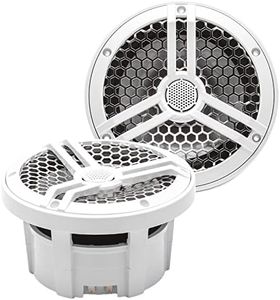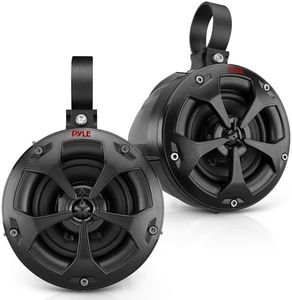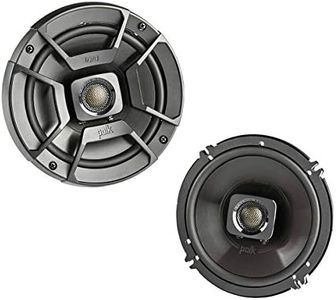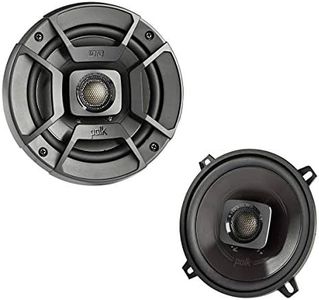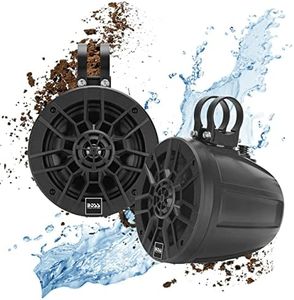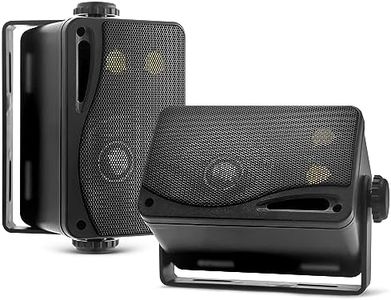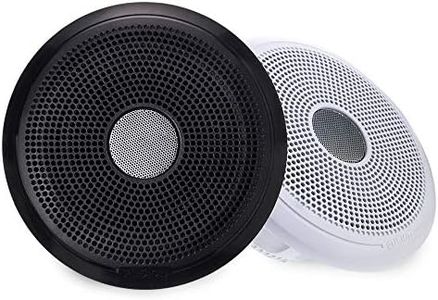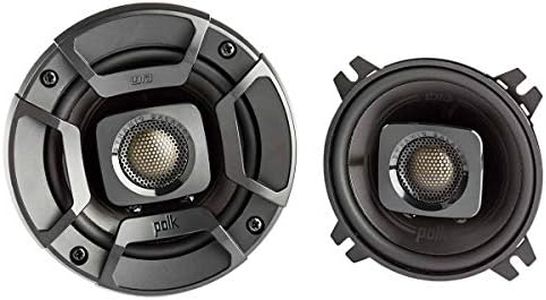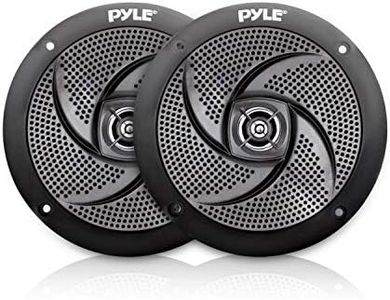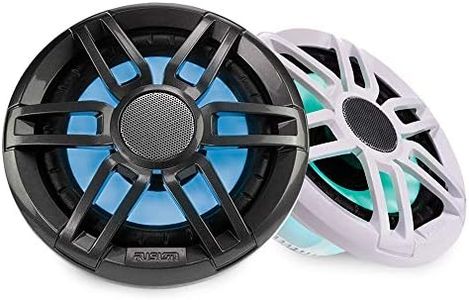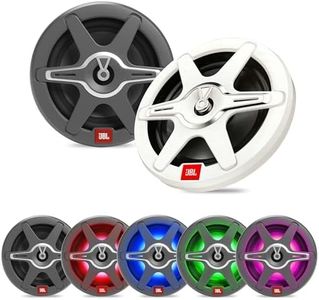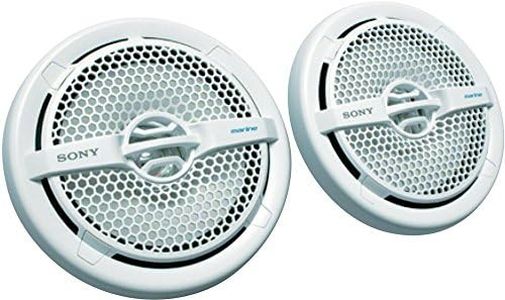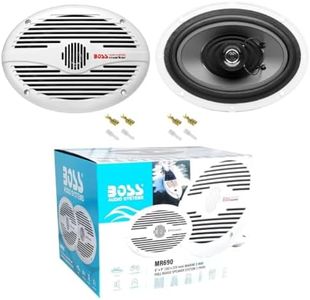We Use CookiesWe use cookies to enhance the security, performance,
functionality and for analytical and promotional activities. By continuing to browse this site you
are agreeing to our privacy policy
10 Best Marine Boat Speakers
From leading brands and best sellers available on the web.By clicking on a link to a third party's website, log data is shared with that third party.
Buying Guide for the Best Marine Boat Speakers
Choosing the right marine boat speakers is important because these speakers are designed to handle the unique challenges of a marine environment, such as exposure to water, salt, and sun. When buying boat speakers, focus on durability, clear sound, and compatibility with your existing system or needs. It’s essential to consider where the speakers will be mounted, the type of boat you have, and how you plan to use them, whether for casual listening or high-energy parties on the water.Waterproof and Weather ResistanceThis spec tells you if the speaker is designed to withstand outdoor elements like water, salt spray, and UV rays. It is very important for marine speakers, as regular speakers can break down quickly in such conditions. Ratings can range from basic splash-resistance to fully waterproof. For boats that often get wet or are exposed to the elements, look for speakers that are labeled as fully waterproof and UV-resistant to prevent damage and discoloration. If the speaker will be mostly protected or in a cabin, a lower level of water resistance may suffice.
Speaker SizeSpeaker size usually refers to the diameter of the main speaker cone, and it affects both sound quality and where you can install the speakers. Common sizes include 6.5-inch, 8-inch, and larger. Bigger speakers often produce louder and fuller sound, but they need more space for installation. Smaller speakers fit into tight areas and are easier to mount, making them a good option for compact boats or limited spaces. Think about where you want to put your speakers and measure carefully so you choose a size that will fit and meet your sound needs.
Power Handling (Watts RMS and Peak)Power handling shows how much power the speaker can take from an amplifier without being damaged. RMS (Root Mean Square) is the continuous power the speaker can handle, while Peak is the maximum it can handle for short bursts. Higher power handling means the speaker can play louder and cleaner music, which is useful if you're often in noisy environments or want to host gatherings. If you just want background music, regular power handling should suffice, but water sports or large parties might call for higher ratings.
SensitivitySensitivity measures how efficiently a speaker converts power into sound, usually shown as decibels (dB). A higher sensitivity rating means the speaker will play louder with the same amount of power. For boats with low-powered stereos, higher sensitivity speakers are beneficial because they make the most of the available power. If you have a very powerful audio system or amp, you have more flexibility, but it’s still good to look for higher sensitivity for clearer and more powerful sound.
Mounting TypeThis refers to how and where the speaker is meant to be installed, such as flush mount, surface mount, or tower (wakeboard) speakers. Flush mount speakers are set into the walls of the boat, giving a neat, seamless look, while surface mount or tower speakers can be attached to rails or towers. Your choice depends on the layout of your boat and where you want the sound to come from. Consider the available installation spots on your boat as well as how easy or difficult the installation will be.
Material QualityMarine speakers are often made with special materials like polypropylene cones, rubber surrounds, and corrosion-resistant hardware. The quality of these materials affects how well the speakers resist rust, sun, and salt. Premium materials last longer and keep sounding good even after years on the water. If your boat is frequently exposed to sun and seawater, prioritize speakers made with the toughest, most durable materials.
ImpedanceImpedance is like electrical resistance and is measured in ohms (Ω). Most marine and car speakers are 4 ohms, which matches most standard marine stereos and amplifiers. Matching your speaker’s impedance to your stereo’s output is key to getting good sound and avoiding damage. Unless you have a specialized sound system, sticking to typical impedance values (like 4 ohms) is usually best.

